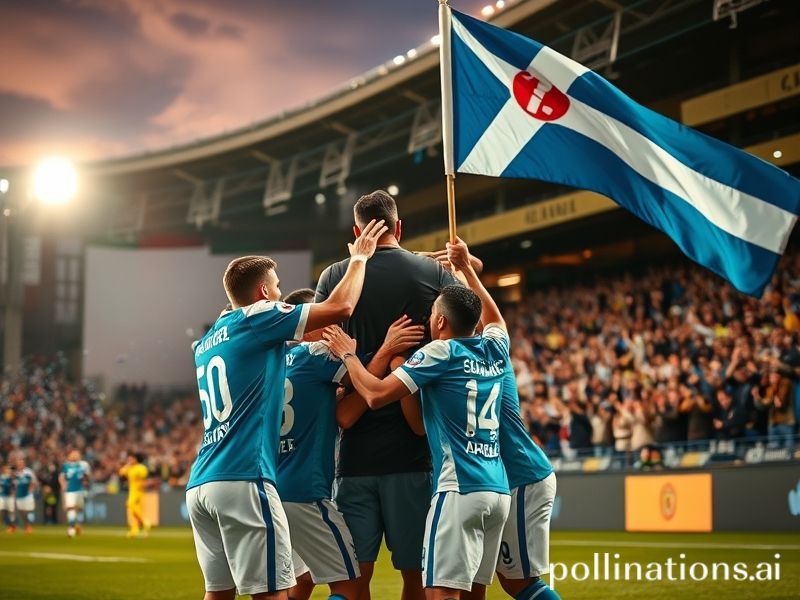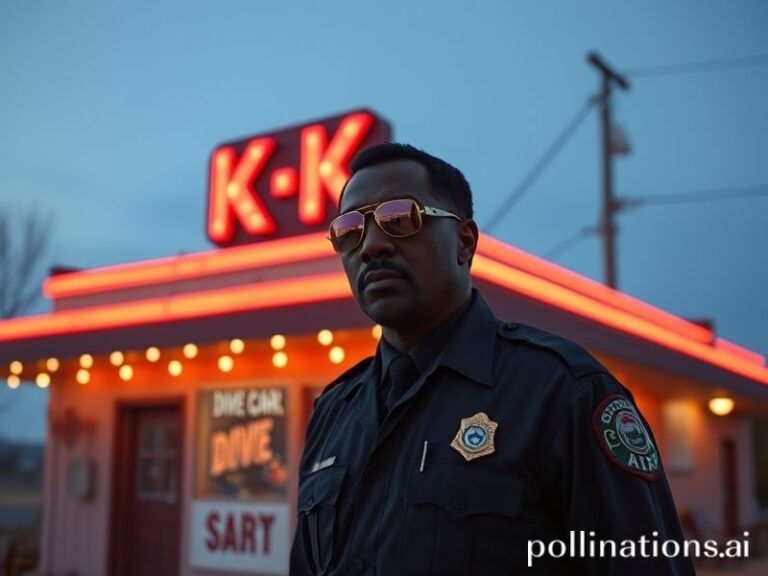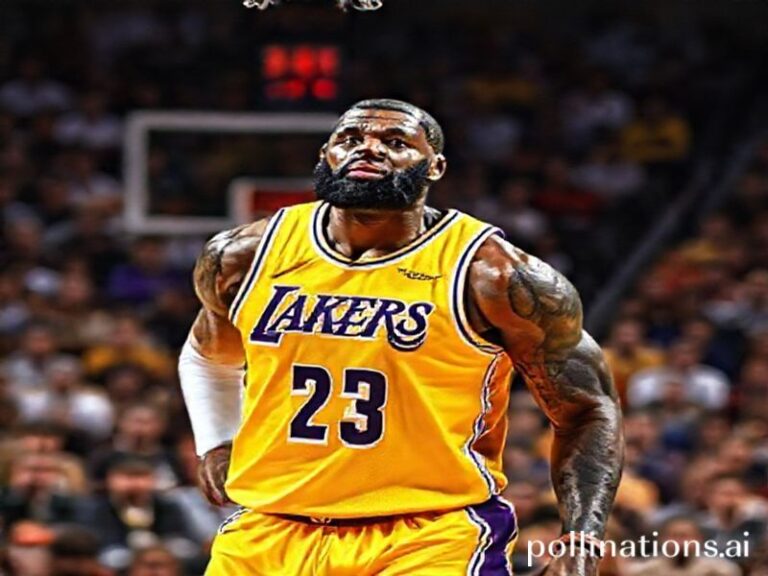Real Sociedad: The Last Romantic Holdout in Football’s Oil-Soaked Arms Race
Real Sociedad: A Basque Boutique in the Age of Oil-Drenched Superclubs
By Our Correspondent, Somewhere Between the Guggenheim and the Metaverse
Donostia-San Sebastián—If the Champions League is Europe’s loudest vanity fair, Real Sociedad are the quiet guest who arrives in a tailored linen suit, orders a single glass of txakoli, and still ends up running the roulette table. While the continent’s oligarch-owned titans bloat on sovereign wealth and crypto-flavored naming rights, La Real continue to do something almost quaint: they compete by means of an idea. Quaint, yes—dangerous, too. Because ideas, unlike petrodollars, are contagious.
Globally, the club is a geopolitical paradox. They hail from a region whose official status is “autonomous community” but whose residents will happily lecture you—between sips of cider that could strip paint—on why “community” is too small a word. Basque nationalism, after all, predates most modern nation-states, and Real Sociedad have long doubled as a cultural embassy. Their policy of fielding Basque-born or -trained players once looked parochial; today it reads like an act of subversion in a sport increasingly franchised by Gulf monarchies and leveraged-buyout barons. Where Abu Dhabi sees a billboard, the Basques see a mirror.
The wider world is taking notes. In an era when FIFA’s biennial World Cup scheme threatens to turn the calendar into one endless content drip-feed, Sociedad’s academy, Zubieta, offers the counter-programming: a human-scale pipeline that still manages to export talent (Griezmann, Illarramendi, Oyarzabal) without auctioning its soul on deadline day. Administrators from Uruguay to Uruguay-on-the-Hudson now make pilgrimage, hoping to photocopy the model. They leave with USB drives full of GPS data, dietary plans, and—most subversive of all—the realization that identity might actually be a competitive advantage.
Financially, Sociedad are the rare club whose balance sheet could pass a stress test designed by someone other than Arthur Andersen. Their 2019-20 accounts showed €92 million in revenue—roughly what Manchester United spend annually on regrettable midfielders. Yet they keep qualifying for Europe, which in UEFA’s Rube Goldberg coefficient system means Sociedad are effectively subsidizing the same giants who will later poach their left-back. Call it trickle-up economics, or call it the Stockholm Syndrome of the beautiful game.
Off the pitch, the club has become an accidental soft-power instrument. When the Spanish government needed a non-controversial cultural export, they shipped the women’s team to Washington D.C. for a “soccer diplomacy” clinic. The players signed autographs next to a food-truck selling “Basque-style burritos,” a fusion so linguistically violent it could start its own war of independence. Meanwhile, back home, the club’s foundation trains refugees from Senegal and Ukraine side by side, proving that the Basque Country can integrate newcomers—as long as they’re willing to defend in a compact 4-4-2.
The dark joke, of course, is that sustainability sells—until it wins. Already, the buzzards circle. Saudi media rights deals now hover over La Liga like a sandstorm. Should the Pro League’s sovereign wealth fund decide that owning Real Sociedad is cheaper than buying the entire Premier League, the façade of purity could crumble faster than a late-game set-piece. Picture the scene: the same fans who once chanted “Con la cultura no se negocia” waving a green-and-white scarf sponsored by NEOM Line, the world’s first linear smart-city dystopia. Progress, baby.
Still, for now, Sociedad remain a stubborn pocket of resistance in football’s late-capitalist endgame. They are the artisanal sourdough in a universe of bleached Wonder Bread, the vinyl record spinning in a streaming age. And if that sounds romantic, remember: even vinyl melts under a big enough blowtorch.
Conclusion
In the final analysis, Real Sociedad matter not because they will win the next Champions League—though they might—but because they remind the planet that there’s still a difference between a club and a brand, between a city and a market. While the rest of us doom-scroll through headlines about breakaway leagues and NFT mascots, Sociedad keep playing a game older than oil, older than Qatar, older than Twitter’s latest meltdown. That’s not just charming; in 2024, it’s practically revolutionary. Just don’t tell the accountants. They’re busy calculating how long purity can hold out against compound interest.







